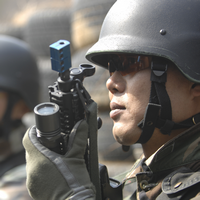More than 56 years after the end of the Korean War ushered in a long period of relative military isolation, South Korea is finally taking steps towards a regional security role commensurate with the country's advanced economy. But South Korea's rise as a military power is complicated by its domestic politics -- and a belligerent North Korea.
Despite a technologically advanced military and a Gross Domestic Product that, at just shy of $1 trillion, makes it the world's 15th-wealthiest country, the Republic of Korea has rarely deployed troops outside its borders. In 1999, Seoul sent 400 soldiers to boost a U.N. force trying to stabilize East Timor when that country broke away from neighboring Indonesia. The Timor deployment was South Korea's first overseas military operation. South Korean troops had fought alongside the U.S. in Vietnam.
South Korean medics and engineers subsequently joined the U.S.-led coalitions in Afghanistan in 2001 and in Iraq in 2003. The Afghan mission was curtailed after the Taliban kidnapped a South Korean church group in Afghanistan and murdered two of its 23 members. The extremists released the surviving captives when Seoul promised to stick to a planned withdrawal by the end of 2007. The Iraqi mission ended peacefully in 2008. That year, Seoul also sent a warship to patrol Somali waters for pirates.

